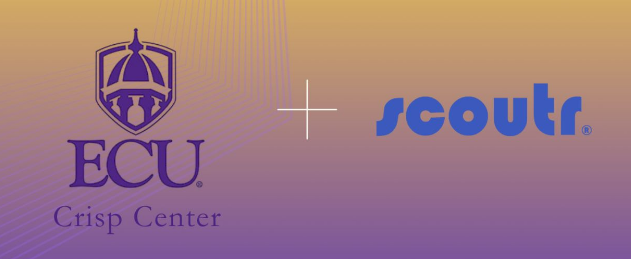.svg)

Embrace the pivot! Listen to your customers, listen to your team, watch market trends, and iterate when necessary. The way you started is almost certainly not the way it ends (so to speak). You have to remain agile and know when to pivot. This one can be tricky, but it relies on the other categories as well.
In today’s fast-paced business environment, scalability is not just a buzzword; it’s a necessity. Entrepreneurs often get trapped in the daily grind of running their businesses, neglecting to put in place the systems, procedures, and people needed for sustainable growth. Without this foundation, companies hit bottlenecks, suffer inefficiencies, and face the risk of stalling or failing. This series aims to delve deep into the intricacies of operational scalability. How do you set up a framework that can adapt to growing customer demands? What are the crucial procedures that can streamline business operations? How do you build a team that can take on increasing responsibilities while maintaining a high standard of performance?
In this interview series, we are talking to CEOs, Founders, Operations Managers Consultants, Academics, Tech leaders & HR professionals, who share lessons from their experience about “How To Set Up Systems, Procedures, And People To Prepare A Business To Scale”. As part of this series, we had the pleasure of interviewing Brandon Stevens.
Brandon Stevens, Founder and CEO of AI talent management platform, Scoutr, has over 20 years of experience in sales, sales management, business development, business analytics, and recruiting. proficient in project and product management, solutions architecture, and data analytics to improve business performance, Brandon also has a strong background in people analytics and human resources solutions.
Thank you so much for your time! I know that you are a very busy person. Our readers would love to “get to know you” a bit better. Can you tell us a bit about your ‘backstory’ and how you got started?
I started my career in the mortgage/banking industry, working in marketing/sales, loan originations, processing, etc. I enjoyed the people and data parts of the business and how transparency and customer education were key to success. After a few years, part of my job became management and recruiting. After the 08/09 crash, I sold my little mortgage shop (or at least the assets, including myself) to a regional community bank. I realized the importance and value of good data! After a couple of years working for the bank, I left and took a little time away to raise my daughter. In 2015, I got an opportunity to work as a Recruiting Manager for a large international recruiting firm and started a “full desk” job in Technology Recruiting (permanent placement). I quickly learned that there wasn’t much predictive data being collected and used, outside or resumes. Keep in mind, I was coming from the world of underwriting and risk assessment where data was key! After a few months, I was in a training program and had the idea that is now Scoutr. The mission then, and now, is to create a marketplace platform that uses predictive data to provide prescriptive data (actionable insights and intelligence) for all users (Organizations and Individuals). We have entered into an era of bilateral qualification, not just unilateral. In other words, what does an opportunity really look like, and how can we share that data with each stakeholder? Scoutr was born out of this idea and has steadily grown over the last 5 years into a Skills-Based Internal Talent Marketplace platform that provides this data for existing employees, managers, and potential candidates. The platform also automates many of the systems and processes currently in place into one system, dramatically improving the experience of the users and the overall employer brand.
It has been said that our mistakes can be our greatest teachers. Can you share a story about the funniest mistake you made when you were first starting? Can you tell us what lesson you learned from that?
Our first mistake was structuring the original product to be used by recruiters only (external agency recruiters). We assumed they would “use” the product with full transparency to improve their client relationships. What we should have realized is that most of these relationships are very topical, and it would be hard for these recruiters to acquire the manager, team and position data to make the system work. So, many of the recruiters we tested with either didn’t use the system at all, used it incorrectly, or falsified (made up) the client-side data (based on their own subjective perceptions).
We learned that this tool needed to be redesigned for the internal organizational user
(managers/administrators), but their motivation was to get this right and improve the experience. We also realized that in many cases the managers/administrators would need to be upskilled/reskilled to use this type of technology.
What do you think makes your company stand out? Can you share a story?
The commitment we have to build a product that is not only reliable but accurate! This commitment is coupled with our commitment to positive outcomes. We believe in working together with our clients to ensure these outcomes but focusing on onboarding/implementation and long-term customer success. We believe these are evolutionary relationships that are ongoing to help each organization improve its employer brand. Our team is committed to the success of each of our new customers and wants to be a long-term partner in change management and positive outcomes.
We learned this early on, often the hard way, due to positioning Scoutr as a recruiting tool. Even the original beta product required an inside-out methodology of discovery. We struggled with this because each client
would look at us as an add-on recruiting technology, and would not focus on the internal issues (team characteristics, team processes, and team outcomes). This correlates with the same issues we saw selling scoutr to external recruiters. Many of our clients in the early days would enjoy the additional candidate data and insights, but wouldn’t bring this methodology and data into existing teams. Needless to say, Scoutr placements “stood out” over and over again!
You are a successful business leader. Which three character traits do you think were most instrumental to your success? Can you please share a story or example for each?
1. First Principles Thinking Strategy (Critical Thinking and Problem Solving)
This essentially means questioning every assumption you think you know about a given problem and then creating new solutions from scratch. This was critical to Scoutr’s long-term success! This requires a pathway to “root cause”, and once you get there you see the problem and solution completely differently. This is where the world's best “disruption” and innovation comes from. I learned this early on and it was the foundation of Scoutr.
Story: In 2017 we realized that most products/services in our space were addressing symptoms of a larger problem, which is lack of visibility into the reality of an opportunity and/or the true potential of the individual. We realized the “culprits” were the actual resumes, job descriptions/postings, recruiting/interviewing methods, and that led to severe inefficiencies in onboarding and employer/employee interactions thereafter. In order for the industry to change, the products and methodology would have to change. Of course, this was not well received by the incumbent.
2. Resilience
Solving problems is hard. Solving problems and turning them into a business is exponentially harder. Learning how to make that a scalable business is even more challenging. Along the way, you can never waiver on your commitment to the mission and goal. You will be challenged every step of the way, and often it can seem like a very dark and lonely place. If you know the solution is right, then keep going. It will take time, but keep going. People will tell you NO, but keep going. You will have to pivot, often multiple times, but keep going. Position yourself early on to make it through the challenges, invest in yourself and gain the knowledge you’ll need (this is neverending), and surround yourself with people who can help you get there.
Story: 3 years ago, we had a client that pushed back against the inside-out model, stating “the way they did things” was just that, fixed and they would not waiver. By the way, we hear this alot. A few weeks ago, that same client reached out to schedule a call. Their time to hire had deteriorated even further, and their turnover rate had doubled since we last spoke. As a founder (or anyone else in the
early stages of an organization) you’ll hear NO often, but this doesn’t mean you’re wrong. It requires you to focus on positioning and a better understanding of buyer personas. Resilience is the persistence and commitment to improving not only the product but how you deliver and support the product.
3. Optimism
As a founder/leader, you have to be able to focus on the positive versus negative aspects of situations. This allows you to pay more attention to opportunities than threats and generally believe things will work out for the best. Combine this with critical thinking/problem solving and resilience and you have the foundations for long-term success. Of course, empathy, self-awareness, and focus come with this and you should be aware of these skills and where you stand at all times. This is not a short-term exercise, but a life-long experience.
Story: This is a bit more personal! Many times throughout my tenure with Scoutr, we’ve had issues that, at the moment, seemed massive and too heavy to handle. Some examples have been funding challenges, partner and/or employee challenges, vendor challenges, etc. I’ve learned to reformulate the negative aspects and turn them into positive opportunities. Every time there’s an issue (and the issues are always going to happen), take the learning experience and turn it into knowledge that helps Scoutr and myself. This is part of the leadership journey that most people struggle with. This journey can be hard at times, but the mission and goals keep us going and help us to stay positive. My optimism has helped me become a better leader, it has helped me solve very difficult problems, and it will continue to make me a better founder, partner, father, friend and son!
Leadership often entails making difficult decisions or hard choices between two apparently good paths. Can you share a story with us about a hard decision or choice you had to make as a leader? I’m curious to understand how these challenges have shaped your leadership.
In 2020, we decided to pivot the company and phase out our recruiting services. This was part of Scoutr staying true to its identity and taking the business/product to the next level. Many people around the company, at that time, thought my approach to this was a mistake. We could have kept down that path, and over the next two years we kept a certain variation of that around, but the pivot continued to evolve to where it is today. In reality, that was the plan all along….we just had to figure out how to get there with what we had.
The impact this had on me as a leader was huge, and I go back to First Principles, and how this helped me solve complex problems. Often the problems are in product, but they can also be in processes or people. The rule applies the same across the board. Understand the issues, understand correlation and causation, and be transparent with the team. After all, we win TOGETHER!!!

Thank you for all that. Let’s now turn to the main focus of our discussion about Operational Scalability. In order to make sure that we are all on the same page, let’s begin with a simple definition. What does Operational Scalability mean to you?
Creating systems and processes that are repeatable and scalable. To take it a step further, this has to be documented appropriately for it to be delegated. As a leader, we owe it to our team to make sure this is done, and that we’re putting the team/organization in a position to have success.
Which types of business can most benefit from investing in Operational Scalability?
Any business that is looking to expand. This is especially important for product companies (software and other technologies). Not only do you have to build a product that has enormous scalability, you have to build the proper infrastructure around it. This is exponentially more difficult than service-based businesses.
Why is it so important for a business to invest time, energy, and resources into Operational Scalability?
To build repeatable processes internally, focused on product improvements, team structure and functionality, and customer satisfaction/success. This has to be a continuous improvement cycle that is shared across the organization.
In contrast, what happens to a business that does not invest time, energy, and resources into Operational Scalability?
Simple, they lose their team in a revolving door, as well as their customers!
Can you please share a story from your experience about how a business grew dramatically when they worked on their Operational Scalability?
A local company, Pendo, went from less than 10 people to more than 500 people in approximately 5 years. The leadership at Pendo focused on product development and customer feedback, while simultaneously focusing on employer brand internally. So, the simultaneous focus on the Employer and Consumer Brand. This company is one of the local unicorn stories in our region. They’ve built a great product, and focus on internal team success and customer success.
Here is the primary question of our discussion. Based on your experience and success, what are the “Five Most Important Things A Business Leader Should Do To Set Up Systems, Procedures, And People To Prepare A Business To Scale”? If you can, please share a story or an example for each.
1 . Understand the problem deeply, therefore allowing you to build a solution that truly helps your user/customer. This is the product-market fit part.
2 . Understand your team is your most valuable asset, and build systems/processes that will help them learn and grow within the organization.
3 . Get your arms around go-to-market, which includes positioning, pricing, support, etc.
4 . Understand your strengths and weaknesses, and learn how to delegate. This one is hard, but it is necessary for scalability.
5 . Embrace the pivot! Listen to your customers, listen to your team, watch market trends, and iterate when necessary. The way you started is almost certainly not the way it ends (so to speak). You have to remain agile and know when to pivot. This one can be tricky, but it relies on the other categories as well.
What are some common misconceptions businesses have about scaling? Can you please explain?
I call this the “field of dreams” mistake, meaning if you build it, they will come. This is simply not true in business, especially in technology. Often we think we’ll build something really cool, and the customers will simply line up to buy. I made this mistake too, and once you realize it the feeling can be disheartening. Strategizing, research and development, and positioning can all be fun and exciting. But, execution in go-to-market can be painful and will make you constantly second guess your approach. Build something that truly helps improve the life of your user, then put the right people around that product to scale (development, marketing, sales, onboarding and support, finance/accounting, etc.) This takes time, but the journey’s worth it if you stick to it.
How do you keep your team motivated during periods of rapid growth or change?
Transparency, communication, and a commitment to support the team. The biggest challenge a leader/manager has is how to actually become an effective leader/manager. In short, instead of a task-oriented job, you actually work for the team and should be focused on providing a team culture that works best for scalability.
Can you please give us your favorite “Life Lesson Quote”? Can you share how that was relevant to you in your life?
“Choose to be optimistic, it feels better” — Dali Lama
“Just keep swimming” — Dory, Finding Nemo
You are a person of great influence. If you could start a movement that would bring the most amount of good to the most amount of people, what would that be? You never know what your idea can trigger. :-)
The Scoutr movement, where Organizations and Individuals see each other in a more meaningful way, creating a partnership. This technology has the potential to change the way we work, the way we see work and opportunities, but most importantly the way we see ourselves! This is the movement I want, to help everyone!
How can our readers further follow your work online?
My LinkedIn profile:
https://www.linkedin.com/in/brandonstevens-teambuilder/
Scoutr Website:
My Scoutr email address:
bstevens@scoutr.team
Thank you so much for sharing these important insights. We wish you continued success and good health!
Latest Articles
Interviews. Applications. Candidate recruiting. Employee onboarding. The world of recruiting has no limit. Start with our blog if you don’t know where to begin.




